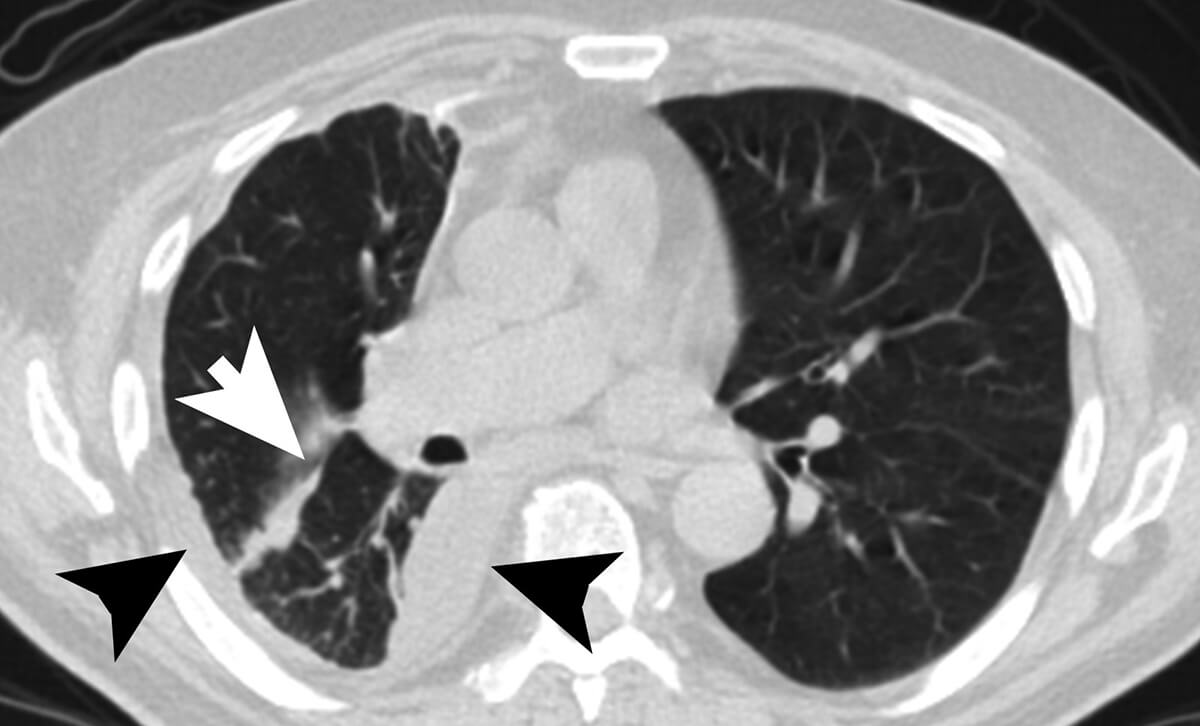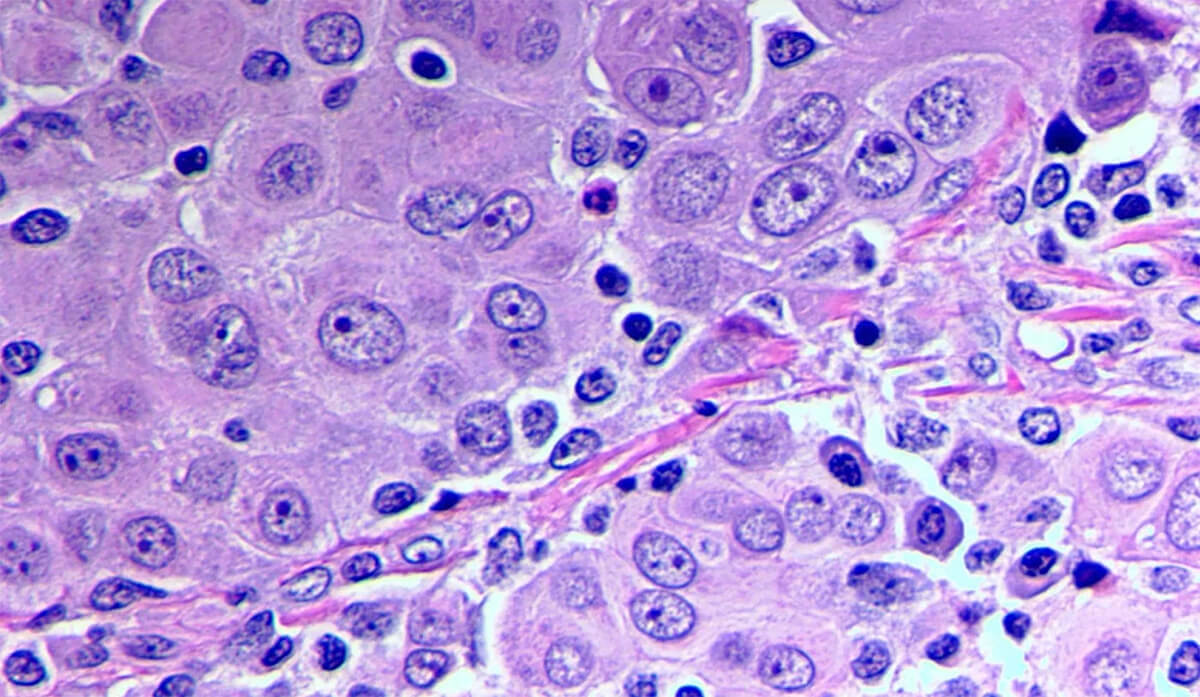Calls for Ukraine
Calls for Europe
Calls for USA

Mesothelioma is a malignant disease in which neoplasms develop from the epithelium of the serous membranes of internal organs (mesothelium). Most often, mesothelial cells degenerate into cancer cells from the lining of the lungs. Pleural mesothelioma is diagnosed in more than 75% of all types of mesothelioma. Less commonly, this type of neoplasm arises from the membrane of the abdomen, the heart, the membrane surrounding the testicle.
This is a fairly rare pathology; about 2-3 thousand new cases are diagnosed annually on the planet. The disease is 8 times more common in men than in women, and usually over the age of 50 years.
The MedTour platform will help you find the best medical center and get to the leading specialists in this disease.
The main reason for the development of this disease is human contact with asbestos. This substance can accumulate in the human body and provoke carcinogenesis. Approximately 80% of the cases when mesothelioma is diagnosed, the person had direct contact with asbestos. Therefore, people who come into contact with this substance are at risk. At the same time, the disease does not develop immediately after contact with asbestos, most often it is diagnosed 20-25 years after that.
In addition, the likelihood of developing the disease increases with prolonged exposure to ionizing radiation, the presence of certain mutations in genes, and the influence of a number of other factors.

According to the location of the neoplasm, there are:
According to the features of the histological structure, doctors distinguish:
In addition, mesothelioma is divided into:
Doctors distinguish four stages of the development of the disease. Pleural mesothelioma stages:
According to a similar scheme, the development of peritoneal mesothelioma and other types of this pathology occurs.
In the early stages of mesothelioma, there are usually no symptoms, so it is often diagnosed at a later stage. As the tumor grows, the following symptoms may occur: general weakness and fatigue, the appearance of pain in the area where the tumor is located. There are also specific symptoms that differ for different types of pathology:

The appearance of the neoplasm depends on its type. If this is a diffuse form, visually the neoplasm looks like a thickening of the shell without clear contours, it can “spread” to the sides and gradually capture other tissues. If localized mesothelioma has arisen, the tumor looks like a nodule in the tissues and has clear boundaries.
After diagnosis, the average life expectancy is 1-5 years. According to statistics, life expectancy after the detection of neoplasms localized in the peritoneum is 2-5 years. With pleural mesothelioma, the prognosis is less favorable and averages about one year. But these are very approximate figures. The prognosis for mesothelioma depends on the type of neoplasm, its stage and other indicators of human health. It is very important to detect the problem in time and make an accurate diagnosis. The clearer the picture of the patient’s health status, the more likely it is that doctors will be able to find an effective treatment.
The MedTour platform will help you to be examined in the best specialized clinics, where experienced specialists work and the latest generation diagnostic equipment is used, which allows you to accurately determine the various characteristics of the neoplasm. Call us to find out more from the medical coordinator of MedTour.
Examination for suspected mesothelioma may include different methods, which may differ depending on its location. The most common diagnostics include:
With the help of these methods of visual diagnostics, it is possible to detect a neoplasm, determine its localization, size, distribution, degree of involvement of neighboring tissues and organs.
However, to make a definitive diagnosis with the determination of the histological type of neoplasm, a biopsy must be done. This is a procedure in which the doctor removes a piece of tumor tissue. Then the specialist makes a histological examination of these tissues, which allows doctors to accurately determine the type and stage of the disease. To diagnose pleural mesothelioma, a thoracoscopic biopsy or thoracocentesis may be done. In the first case, to take a tissue sample, the surgeon makes a small incision and, using a special device under video surveillance, pinches off a fragment of the neoplasm. In the second case, pleural fluid is taken for analysis using a special needle. When diagnosing a tumor in the peritoneum, the doctor may order a laparoscopy with a biopsy to take a sample.
This is a complex disease that is difficult to treat. The modern approach, which is used in the leading oncological clinics of the world, is an individual choice of treatment with a combination of several methods. Doctors use both traditional methods: chemotherapy, surgery, radiation therapy, and new ones – targeted therapy, immunotherapy.

The operation to remove mesothelioma is effective in the early stages, when the neoplasm can be completely removed. Unfortunately, more often patients turn to a doctor in the later stages of the disease, when complete removal of the tumor is impossible. In such cases, a cytoreductive operation can be performed, the purpose of which is to remove most of the neoplasm.
Surgical intervention can vary markedly in volume. For example, when it comes to pleural mesothelioma, doctors can only remove the tumor and pleura. Or, surgeons may also remove the cancerous lung, nearby lymph nodes, the pericardium, and part of the diaphragm. In this case, doctors also perform reconstructive surgery, restoring the pericardium and diaphragm with artificial materials. If surgical treatment of peritoneal mesothelioma is performed, the tumor with part of the peritoneum is removed. Specialists may also remove part of the intestine and surrounding fatty tissue.
It is the most commonly used treatment for mesothelioma and can be used alone or in combination with surgery and radiation. In chemotherapy, doctors prescribe drugs that stop cancer cells from dividing or kill them. Unfortunately, these drugs are quite toxic for the whole body. Therefore, the doctor’s task is to correctly select the dosage that would allow suppressing a malignant disease with a moderate toxic effect on the body.
Chemotherapy can be administered intravenously, in the form of tablets, or injected locally into the area where the tumor is located. Local injection of the drug increases the dosage and acts more purposefully. Hyperthermic chemotherapy can also be used, when the drug is heated to 40 degrees before injection. Increasing the temperature of the drugs also enhances the effect of chemotherapy.
Targeted therapy is a more modern and effective method of treatment. In this case, oncologists use drugs that have a directed effect. In this disease, drugs that prevent the formation of new blood vessels are used as targeted therapy. This reduces the activity of the disease and slows down the growth of the neoplasm.
Radiation therapy for mesothelioma is usually given after surgery. Irradiation of the surgical area kills single tumor cells, if any, and significantly reduces the likelihood of recurrence.
In addition, radiation may be given as a palliative treatment to reduce the symptoms of the disease. Intensity-modulated radiation therapy (IMRT) is a type of radiotherapy that doctors can use for this disease. This method affects the tumor with higher doses with maximum accuracy, while healthy tissues are less exposed to radiation.

When prescribing immunotherapy, the doctor injects the patient with drugs that use the natural mechanisms of the immune system to fight cancer cells. To date, there are several immunodrugs that are used in the fight against this disease.
A separate area of immunotherapy is vaccine therapy. Today, there is an active development of cancer vaccines, the use of which can significantly improve prognosis and reduce the likelihood of recurrence of the disease. There are vaccines that are made individually from the patient’s tumor cells. Another type of vaccine is made using animal proteins.
To prevent the disease, it is necessary to avoid contact with asbestos, as well as with a number of other carcinogens. In order to detect the disease in the early stages, it is important to regularly undergo preventive examinations of the body and respond in a timely manner to signs of deterioration in health.
For those who have been treated for mesothelioma and have achieved remission, the use of cancer vaccines is a good preventive measure. Vaccination will significantly increase the likelihood of a full recovery and avoid the appearance of secondary neoplasms.
MedTour cooperates with clinics that use the most innovative and effective methods of cancer treatment. You can get a cancer vaccine at these clinics today. It is possible to get vaccinated in Ukraine, Turkey, Germany. Contact us for details.
In leading cancer centers, doctors use a personalized approach to the treatment of malignant diseases. This allows you to develop the optimal tactics for dealing with the disease for each case. The MedTour platform cooperates with many medical institutions that specialize in the treatment of oncological diseases. We will help you find the best clinic that will best suit your medical needs and requests.
You can get acquainted with the clinics that treat mesothelioma on our website. The medical consultant of MedTour will help you make the best choice.
You can undergo mesothelioma treatment with the best oncologists from Ukraine, Turkey, Germany, Italy, Spain, Israel, South Korea. We work with specialists with many years of experience, well known in their field. MedTour will help you find a specialist, taking into account the characteristics of your disease.
You also have the opportunity to have an online consultation with leading oncologists from different countries. During the consultation process, you will be able to get an expert opinion from a doctor about your medical problem, discuss treatment options and hear prognosis. Contact us to find out more.
Please rate the work of MedTour
